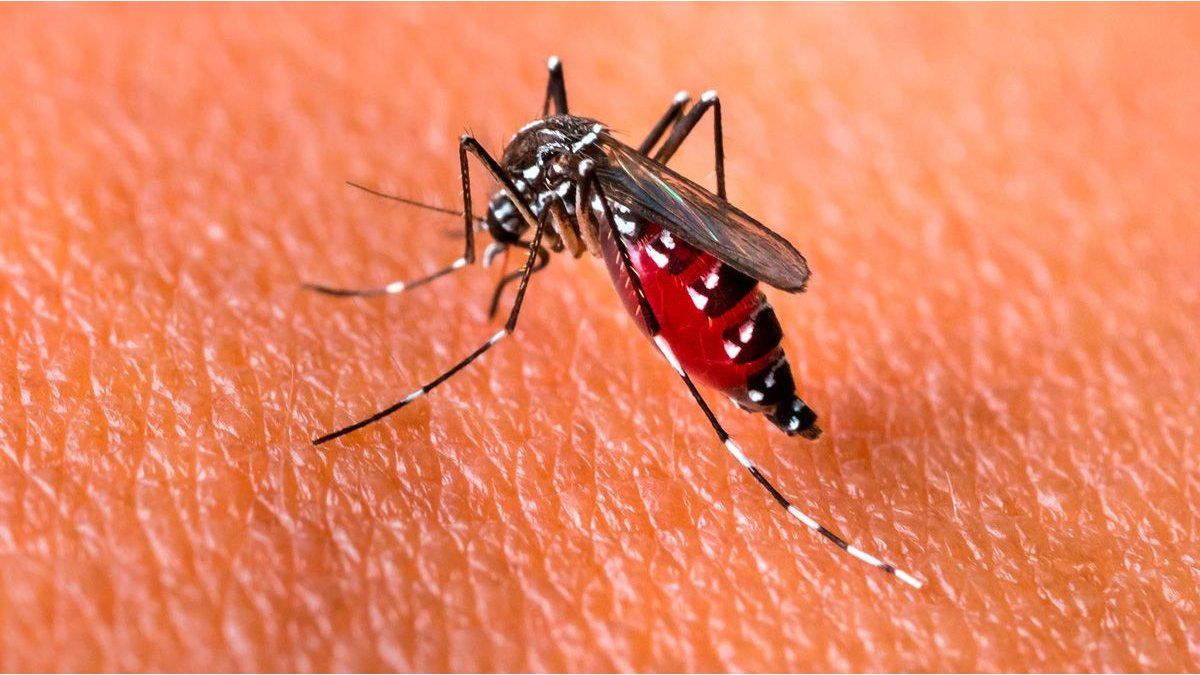It was registered on first case of dengue in Buenos Airesas reported this Thursday by the provincial Ministry of Health. The affected person is a 32 year old man resident in La Matanza, who had the disease confirmed by laboratory and no travel history.
After presenting symptoms on October 14 and experiencing the disease without requiring hospitalization, ”the focus control actions were carried out at the patient’s home and the search for feverish people in the radius of the home”, as indicated.
He Aedes aegypti It has domiciliary habits and reproduces in any natural or artificial container that contains water. For this reason, you have to turn, throw off, cover and wash objects that may accumulate water, doing so periodically. In addition, people who have symptoms compatible with dengue can make a consultation through the Mi Salud Digital chatbot; as well as contact 148, and the telemedicine system will guide them, evaluating the condition.
The ministry also highlighted that “the Buenos Aires dengue plan also includes guidelines for the organization of health services and people’s trajectories within the framework of care for this disease and it is very important that the entire health team I can meet her.”
What to do after being diagnosed with dengue and how to prevent it
He dengue It is a viral infection that is transmitted by the bites of females. Aedes aegypti mosquitoes and it is not spread from person to person. However, when a patient is diagnosed, a mosquito can feed on their dengue-affected blood, then bite other people and transmit the disease.
In this sense, it is important to know the measures to take care of yourself and others. According to experts, dengue usually causes a high fever that can last between 2 to 5 days. During this period, the patient is in the viremia phaseso the virus is found in the blood. If a mosquito bites a person during this phase, they can become infected with the disease.
Because of this, it is very important that the infected person take prevention measures in the febrile stagethe recommendations are:
- stay locked up in a room with mosquito nets and air conditioning.
- Use repellent and repeat the application depending on the duration of the effect of each product.
- Relatives of the patient should Check for breeding sites for mosquito eggs and larvae. nearby to eliminate them.
Dengue symptoms: how they start
If symptoms occur at the time of the disease, people generally begin with feverthen severe headaches, joint pain, muscle pain and rash.
The most frequent symptoms are:
- High fever (greater than 38°)
- Intense muscle pain
- Pain behind the eyes
- Headache
- Discomfort
- lack of appetite
- Red spots or rash on the body, which may itch
If you present any of these symptoms, you should go to the doctor to receive appropriate treatment. Furthermore, it is important to highlight that you don’t have to self-medicate if they are not medications indicated by health professionals.
Recommendations to eliminate mosquito breeding sites
- Eliminate all unused containers that can accumulate water (cans, bottles, tires, etc.) inside and outside the home and/or workplace.
- Turn over, cover or protect useful objects that are outside and can accumulate rain or irrigation water (buckets, basins, drums, toys, etc.).
- Brush, clean and change water in animal water bowls, air conditioning or rain drain collectors. Brushing or rubbing the inside walls of the container is essential to dislodge the mosquito eggs that are stuck there.
- Avoid having plants in water.
- Replace water in pots or plant containers with sand.
- Fill the pot holders with sand in order to absorb excess water when watering.
- Keep patios and gardens weeded.
- Unclog gutters and rain drains.
- Pour hot water on the grates and place mosquito netting on them.
- Keep tanks and containers (citters, cisterns, etc.) used to collect and store water covered.
- Keep swimming pools clean and chlorinated.
- Keep them covered when not in use.
Source: Ambito
David William is a talented author who has made a name for himself in the world of writing. He is a professional author who writes on a wide range of topics, from general interest to opinion news. David is currently working as a writer at 24 hours worlds where he brings his unique perspective and in-depth research to his articles, making them both informative and engaging.




